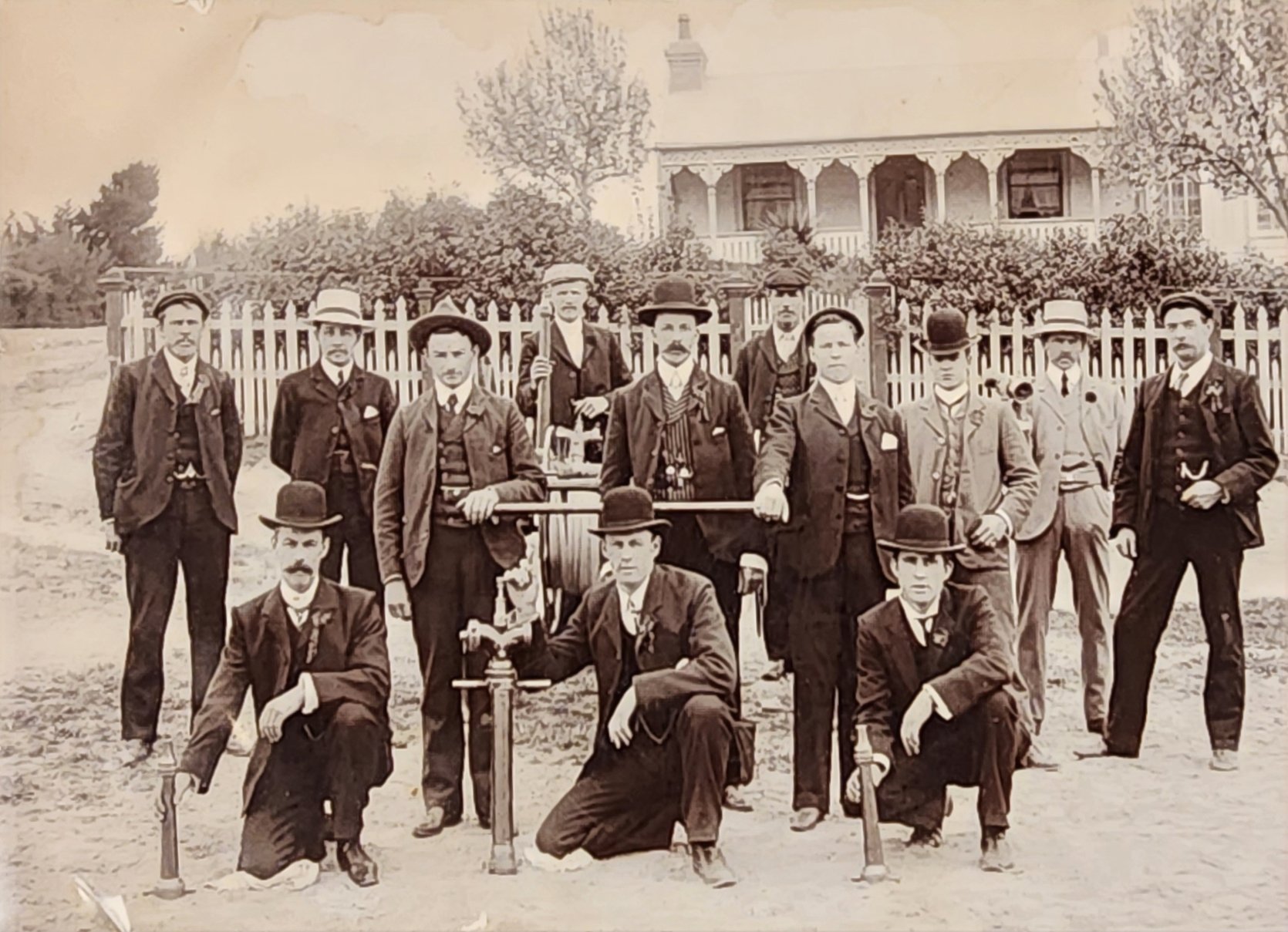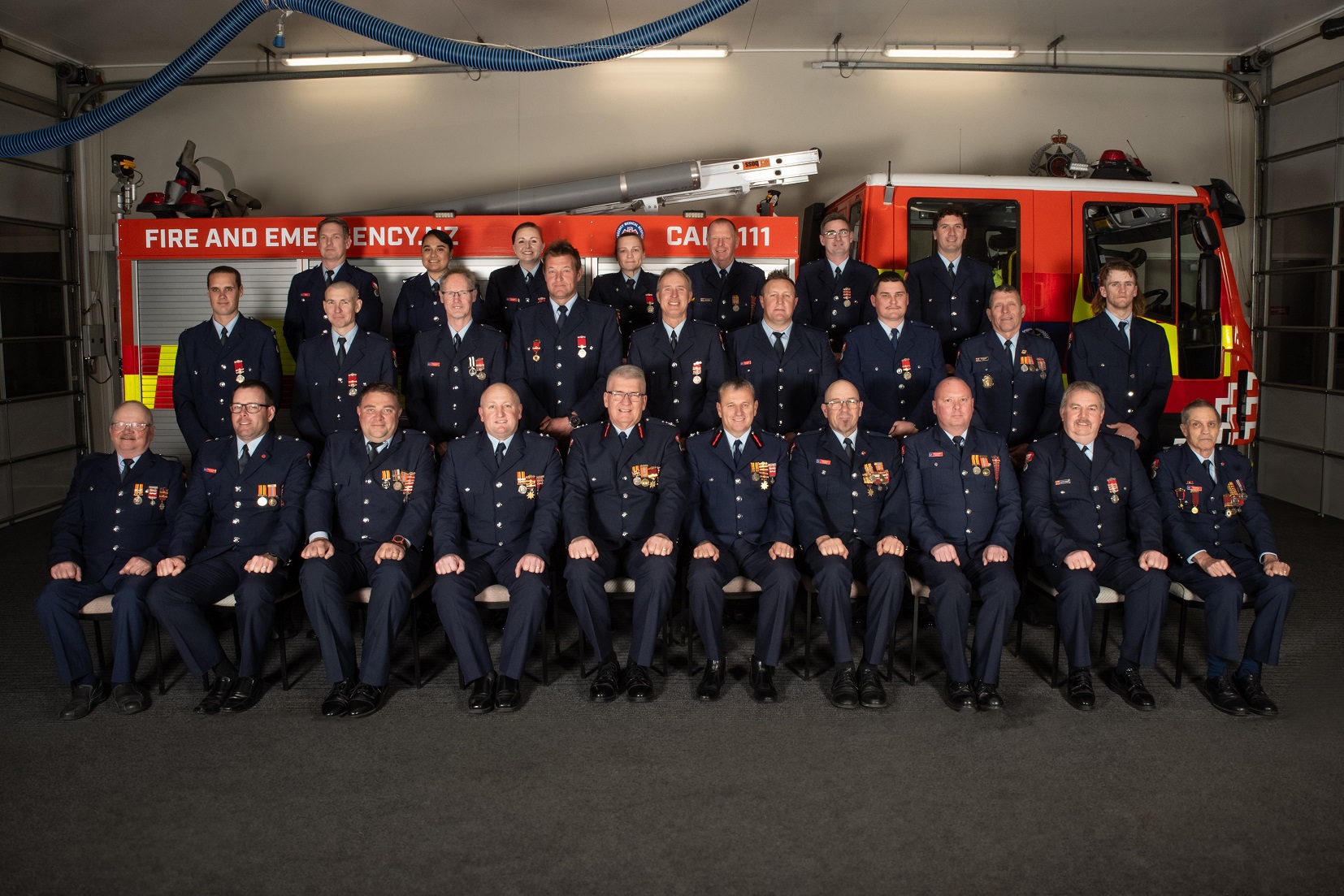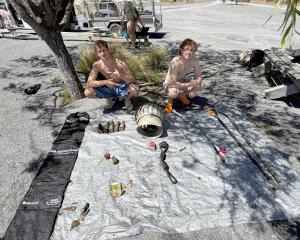
Call and they will come.
For 150 years volunteers in Cromwell have been answering the call of the bell, or siren, and working together to save homes, businesses, vehicles and farms from flames.
From tourist buses to laundromats, liquor stores to scrub fires, the brigade has been involved in fighting fires in every conceivable part of the town.
Cromwell Chief Fire Officer Neil Gillespie said one of the biggest changes of the past century and a-half was that they no longer just put out fires.
"That’s been evolving over the years ... a lot of our time and effort now is, you know, I suppose community support, community assistance.
"When someone needs help we’re going to get some manpower."
During last week’s flooding, firefighters were called upon to help evacuate people from their homes and in bigger centres, brigades have urban search and rescue units, he said.
One of the biggest changes since he joined in 1993 was the number of calls.
"When I started, we had 40 calls for the year, I think it was, and last year we had 180.
"That’s huge."
However, other volunteer stations such as Queenstown and Blenheim were getting 400 calls a year.
The Cromwell brigade had about 35 members, almost double the 20-odd who attended the original meeting called by then mayor David Jolly.
In the Cromwell Argus Mr Jolly gave notice of a public meeting in the Town Hall on September 1, 1874 to take steps towards forming a fire brigade.
Today brigade members carry pagers that alert them to callouts.
The Cromwell brigade has three crews of nine firefighters on a duty roster for evening and weekend duty.
That meant the leadership group knew they would get sufficient people "to get the truck out the door" and also allowed the volunteers to plan their lives around the roster.

"We encourage people to turn up because sometimes it gets bigger than Ben-Hur and numbers are important."
During weekdays the brigade depended on volunteers working in the town and their employers accepting they might down tools and run at any time.
The contribution made to the brigade by the volunteers’ families and "some pretty generous" employers could not be overstated, he said.
"Without them we could not do it."
Some of the Cromwell members were self-employed, which made it even harder for them when they were called out.
Others, like CFO Gillespie, worked out of town and responded to other brigades’ calls during the day.
One of the difficulties was no-one knew how long a call would last.
The last large fire in Cromwell was a laundromat in McNulty Rd.
"I got home from that at four o’clock in the morning, got up the next morning after a couple or three hours’ sleep and didn’t go to the office because I had some paperwork to do."
Nine members of the brigade had given more than 30 years of service to the brigade and one had given 50 years. The dedication clearly runs deep.
A recent recruitment drive found "15 or 16" potential new members but many areas struggle to attract members but many areas struggle to attract members.
Training included how to respond to medical calls and was more structured than it had been in the past. Competencies had to be achieved and then retained.
With Cromwell’s population pushing over 10,000 and growing fast, the demand on the brigade is increasing.
A significant difference in the past 150 years is the involvement of women in the firefighters’ ranks.
Firefighter Toni Andrews had a family connection to the brigade.
Two years after she joined her father Clayton signed on.
FF Andrews and fellow officer Senior Firefighter Kris King had been working for about nine months to make today’s 10am-2pm open day, a special one for the whole community.












